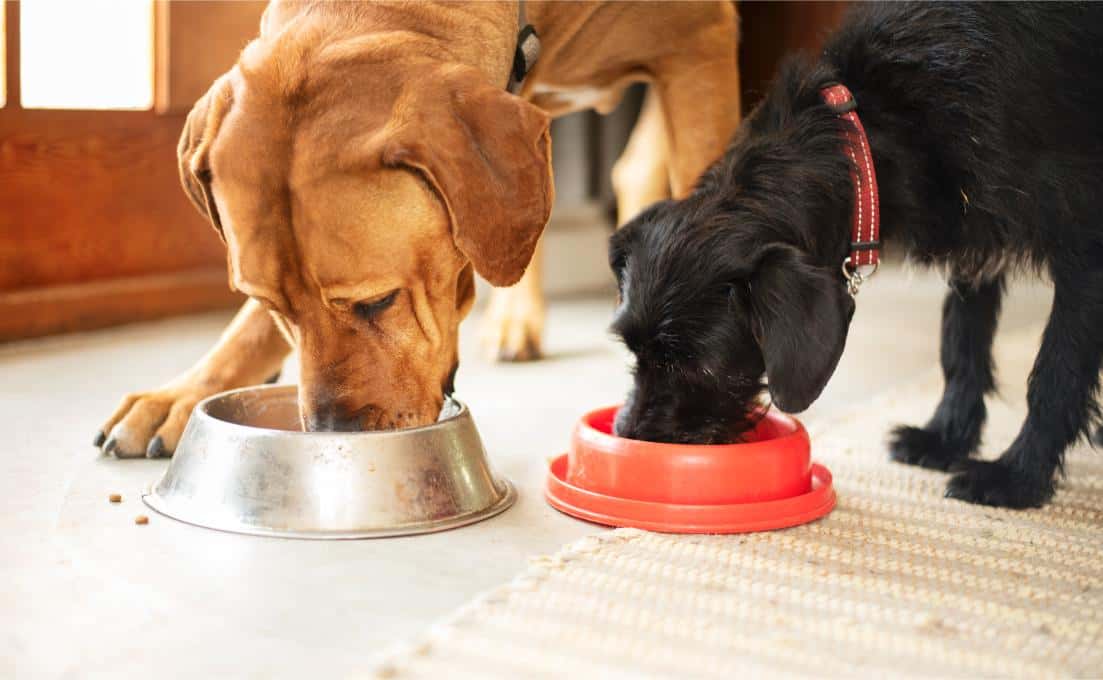Feeding Your Senior Pet: A Guide to Balanced Nutrition

As our pets age, their bodies change—and so do their dietary needs. Many senior pets need specific senior dog food or senior cat food to stay healthy. It can be hard to understand why this happens and what to do about it.
So whether you have a senior dog or cat, the team at Bowman Veterinary Hospital would like to share our best tips about senior pet nutrition. Here’s what you need to know about senior pet dietary needs.
Understanding Senior Pet Dietary Needs
Like humans, our elderly pets undergo changes in their metabolism, energy levels, and immune system as they age. This means their diet needs to be adjusted to meet these new requirements.
For example, senior dogs and cats might need fewer calories, but they still need high-quality protein to maintain their muscle mass.
And older pets often deal with conditions like arthritis, dental issues, and digestive problems. With the right senior pet diet, you can help your pet avoid the worst of these issues.
Choosing the Right Senior Pet Food
When you’re looking for the best senior dog food or senior cat food, it’s important to choose a formula specifically designed for older pets. These foods usually have just the right balance of protein, fat, and fiber for our older animals.
Before anything else, look for a label that says the food is for senior or geriatric pets. Then choose from senior pet foods that include high-quality animal proteins like beef, salmon, lamb, or chicken.
These are easier for senior pets to digest. They also provide essential amino acids, which help with muscle maintenance.
You might want to consider using wet food more often for your senior cat, too. It provides extra moisture, which is key for sustaining your kitty’s kidney health and helping her avoid UTIs.
Senior dogs don’t necessarily benefit in the same way from wet food. But they do benefit from foods that include joint-supporting ingredients, like glucosamine and chondroitin. These ingredients can help keep your dog’s joints healthy as he ages.
Incorporating Supplements into a Senior Pet’s Diet
Supplements can be incredibly useful for helping support your senior pet’s health. It’s always a good idea to consult with your veterinarian before starting your senior pet on any supplements, but in general, try the following supplements:
- Omega-3 fatty acids: Support joint health, reduce inflammation, and promote a shiny coat
- Probiotics: Help maintain your pet’s digestive health
- Joint supplements like glucosamine, chondroitin, and MSM: Can help alleviate the discomfort of arthritis and improve your pet’s mobility
Remember: always consult with your vet before starting Fido or Kitty on any supplements. A high-quality senior pet food may already give her what she needs!
Monitoring and Adjusting Diet
Regular vet check-ups are essential to help monitor your senior pet’s health. Your veterinarian can:
- Guide you on the right portion sizes
- Recommend specific senior pet foods
- Suggest supplements your pet can benefit from
If you live in the Auburn, CA area, the caring team at Bowman Veterinary Hospital is here to help get your senior pet the food she needs to enjoy healthy, happy golden years. Call us today at (530) 823-6306 or fill out our appointment request form to schedule an appointment.


